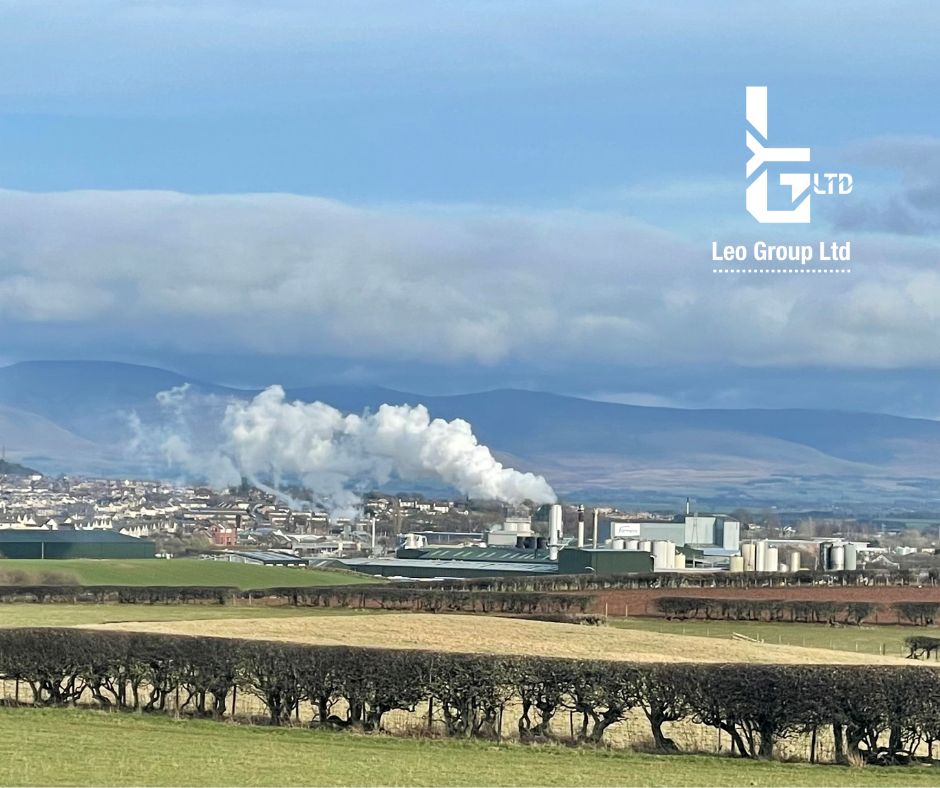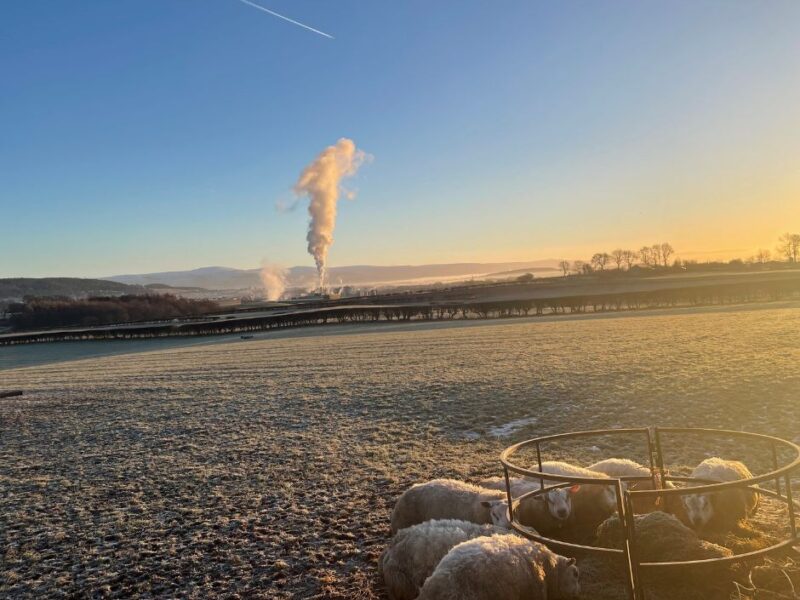
Omega Proteins Penrith explains the process of receiving and handling animal-by-products
Contrary to popular belief, animal by-products are no longer considered waste, but are recognised as a very valuable material that is processed into ingredients for high-quality modern products.
Recently we were asked how our process for receiving and processing animal by-products at our Penrith site works in terms of odour control, and we thought this would be a good opportunity to explain this in more detail to prevent any misconceptions.
From the collection and delivery of the material to the final processed product and dispatch, we follow a set process and strict quality control underpinned by our GMP+ certification, the world’s largest feed certification scheme, and PAS 99 – Certification covering ISO 14001 (Environmental Management), ISO 9001 (Quality Management) and ISO 45001 (Health & Safety Management). Animal rendering is not a dirty business, as some still claim, but takes place in a high-tech facility under completely hygienic conditions and within the requirements of environmental permits and animal health regulations.
The actual process starts at collection. Our transport division, Haulage Holdings, has a large, modern fleet of specialist vehicles that collect Category 3 animal by-products from abattoirs, catering and deboning outlets throughout the UK. Category 3 means that the by-products are actually fit for human consumption, as evidenced by the quality of the oils we produce at our Penrith plant. However, while this material is used in the human food chain in other parts of the world, there is no comparable market for consumption in the UK. A large proportion of the raw material is refrigerated at source and collected promptly so that it is delivered to us as fresh as possible. This makes the odours that can arise during the process of unloading the material by tipping it into large collection bins less strong.
Upon delivery at our Penrith site, all shipments are checked and documented by Quality Control and are processed within 24 hours. In the very rare event that an incoming shipment contains rotten material, it will be rejected by Quality Control as inferior material unsuitable for processing as it would affect the value and suitability of our end products. Rejected material is downgraded and sent to our dedicated Category 1 site in Bradford where it is processed into meat-and-bone meal (MBM) and tallow. Both of these products are then used as raw ingredients in the biodiesel industry and as an alternative to fossil fuels in industries such as power generation or cement production.
We also operate a laboratory on site 24 hours a day with highly qualified technicians who analyse and monitor the raw materials and assess each end product, also for traceability. The laboratory tests for various things, such as: Free Fatty Acids, Nitrogen, Phosphates and Calcium – each of our customers has their own specifications that we have to meet. Our products are recognised worldwide for their quality and our customers include world-renowned pet food brands and energy suppliers who demand only the best.
Before processing, the raw material is tipped into large bins in our dedicated tipping sheds, which operate with closed doors under negative pressure so that any potential odours are kept inside the building. These storge bins are also lidded. The internal building air is extracted to the odour control system of chemical scrubbers and biofilters. If there are waiting times for trailers to be tipped, they are parked temporarily under cover inside a special trailer shed behind closed doors.
Following unloading at the tipping point, the raw materials are in a completely closed production cycle and are not exposed to the free air. The odours produced during processing inside the cookers and other processing equipment are removed at various extraction points in the production line and treated by thermal oxidisers, which combust the odour-intensive components at temperatures above 850°C. The less odorous internal building air generated in the buildings housing the processing equipment is again extracted to chemical scrubbers and biofilters for purification.
After tipping, the empty trailers are thoroughly washed and disinfected in our specially equipped trailer wash building.
After the raw material has been processed, the oils and fats produced during processing are stored in tanks, while the solid meals are filled into large bags or bulk trailers/containers and prepared for dispatch and shipping.
Our high-quality products made at our Omega Proteins site in Penrith are used as ingredients in pet food, fish feed, oleochemicals, cosmetics, biodiesel production and as sustainable aviation fuel, and are distributed through a global distribution network.




